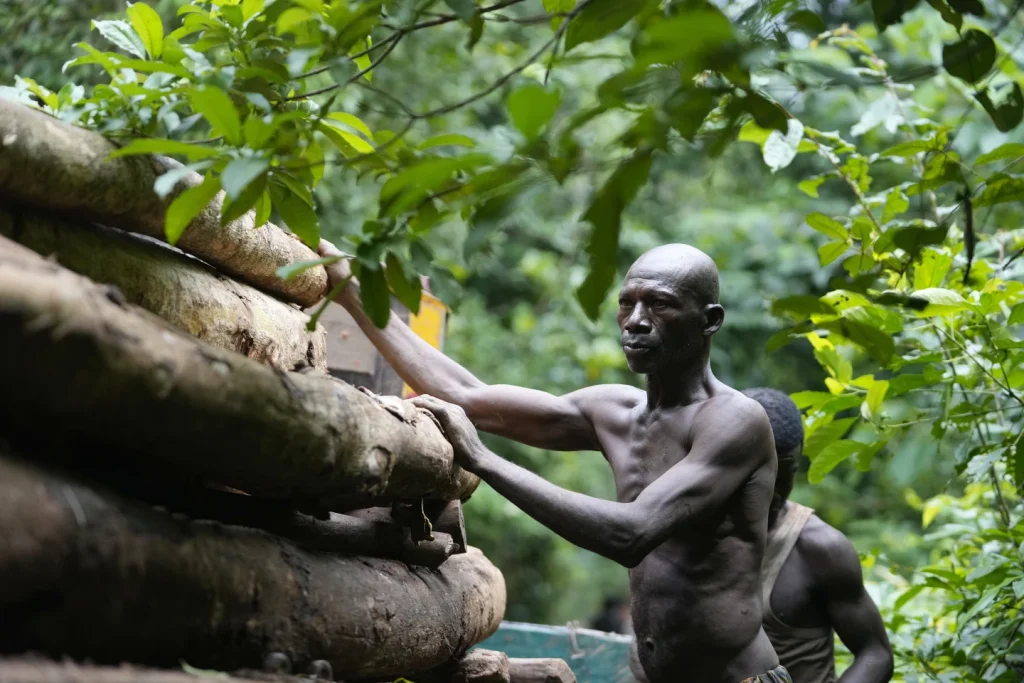In the Omo Forest Reserve in Nigeria, a disconcerting scene unfolds as the sound of roaring chainsaws fills the air, signaling the destruction of trees.
With bare-chested men tirelessly hacking away at branches along a muddy road, the scene is one of blatant disregard for the protected status of this area.
Trucks laden with timber belch dark plumes of smoke as they depart, further exacerbating the ecological damage.
The Omo Forest Reserve serves as a sanctuary for endangered species such as African elephants, pangolins, and white-throated monkeys, making logging activities strictly prohibited.
However, the lack of action from forest rangers in the face of such audacity has only served to embolden those responsible for this illegal activity.
Ranger Sunday Abiodun, during a recent visit to the reserve, expressed his frustration at witnessing individuals previously arrested and handed over to the government continuing to operate within the forest.
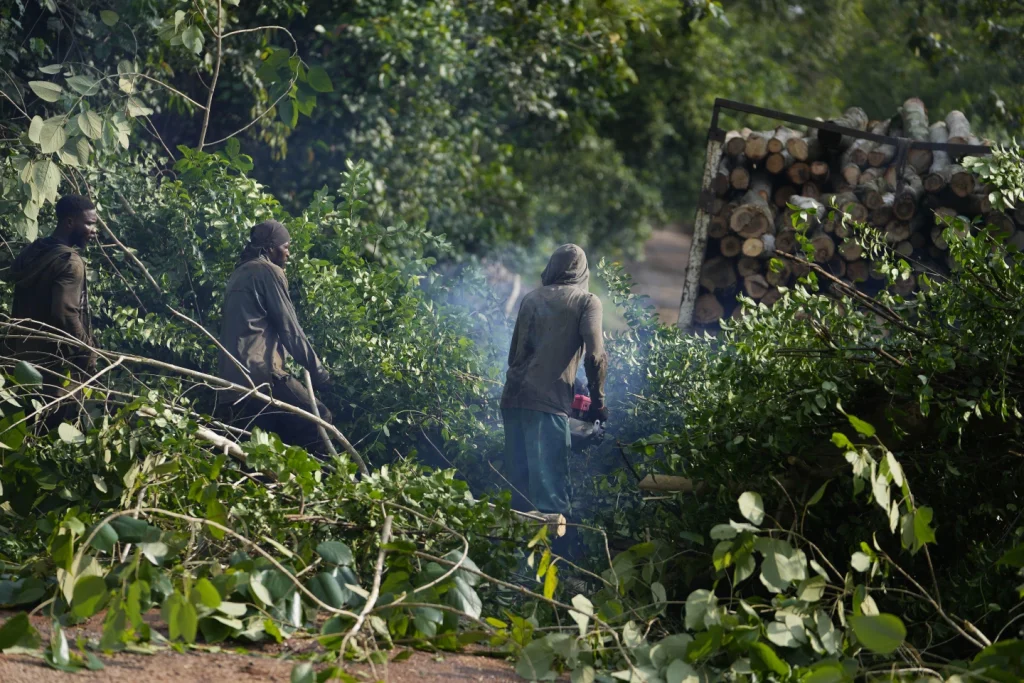
According to conservationists, the outer region of the Omo Forest Reserve, where logging is permitted, has already experienced significant deforestation.
The relentless pursuit of timber has resulted in a scarcity of trees in this area, forcing loggers to venture further into the heart of the expansive 550-square-kilometer conservation area.
Unfortunately, this is not the only threat faced by the reserve, as uncontrolled cocoa farming and poaching also pose significant risks to its delicate ecosystem.
The combined impact of these activities has the potential to irreversibly damage the biodiversity and ecological balance of the Omo Forest Reserve, thereby undermining its conservation efforts.
It is imperative that immediate action is taken to address these pressing concerns and ensure the long-term sustainability and preservation of this invaluable natural resource.
Conservationists and rangers have expressed their frustration and disappointment with the Nigerian government, accusing it of neglecting its responsibility to enforce environmental regulations and failing to replant trees adequately.
This negligence, they argue, undermines Nigeria’s commitment under the Paris climate agreement to protect and maintain vital ecosystems such as forests, which play a crucial role in absorbing carbon emissions from the atmosphere.
Specifically, they point to the government’s lack of action in preserving the forest reserves, where rampant deforestation is taking place.
The government of Nigeria’s southwestern Ogun state, which owns one of these reserves, has vehemently denied these allegations and claimed that it is replanting more trees than are being cut down.
However, the gatekeepers of the forest and those involved in processing the wood strongly dispute this assertion, asserting that trees are indeed disappearing at an alarming rate.
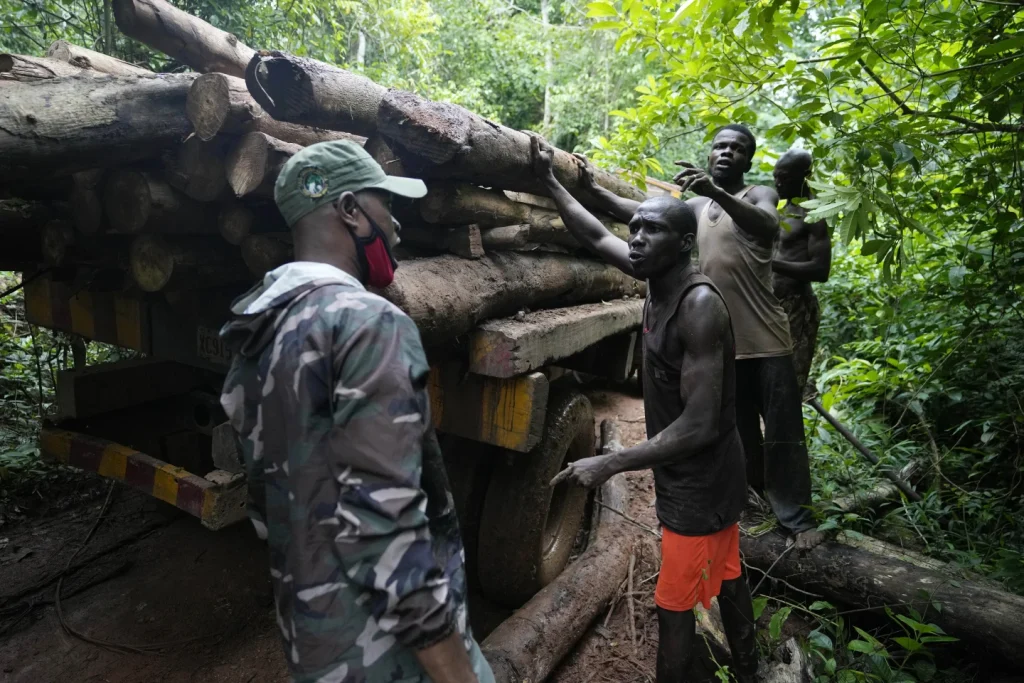
This ongoing disagreement between the government and environmental advocates highlights the urgent need for a comprehensive and transparent approach to environmental conservation and sustainable forestry practices in Nigeria.
Sawmillers obtain annual permits from the government, granting them the authority to harvest trees until their designated area is completely deforested.
Once this occurs, they can then apply for a new section to continue their operations. However, sawmillers argue that the permit fee, which amounts to 2 million naira ($2,645), is intended to cover the government’s costs for replanting trees, a practice that seldom takes place.
“The government is not replanting,” asserted Owolabi Oguntimehin, a sawmiller in Ijebu, a nearby town with more than 50 sawmilling companies relying on the reserve. “It is not our responsibility to replant because the government collects the fee from us.”
In addition to the issue of replanting, forest guards employed by the state government claim that authorities fail to enforce tree removal standards, even when loggers possess valid permits.
Joseph Olaonipekun, a guard, noted that officials from Ogun state’s forestry department used to mark trees eligible for cutting and ensured “strict” enforcement to prevent the removal of unauthorized trees. However, this practice has been abandoned.
Nigerian ecologist Babajide Agboola emphasizes the importance of implementing selective logging as a means to mitigate the adverse effects on biodiversity while allowing young trees to continue growing.
“This method allows for a more sustainable approach to logging and forest management,” Agboola stated. By adopting this strategy, the negative impact on the environment can be minimized, ensuring the long-term preservation and effective management of forests.

The disappearance of trees such as Cordia wood, mahogany, and gmelina from the periphery of the forest is a matter of great concern, as reported by both sawmillers and reserve gatekeepers.
To prevent the dismantling of the conservation zone, massive reforestation efforts are urgently required, according to Agboola.
However, the forest rangers employed by the nonprofit Nigerian Conservation Foundation, which partners with the government in managing the conservation zone, have encountered significant difficulties in protecting the off-limits areas from illegal logging.
They have discovered that loggers who harvest trees in the conservation zone often boast about evading regulations by bribing government officials.
Ranger Johnson Adejayin emphasized the need for government support in preserving the forest and called for strict enforcement and sanctions to prevent loggers from continuing their illegal activities and confidently evading punishment through financial means.
The Nigerian economy, which is the largest in Africa, heavily relies on agriculture, forestry, and other land uses.
These industries, although they provide jobs for the majority of people in agrarian communities around the reserve, are also responsible for 25% of Nigeria’s greenhouse gas emissions.
This has sparked a debate about the political will to enforce environmental sustainability when livelihoods are at stake.
Wale Adedayo, the chairman of the Ijebu East local government area where a significant part of the forest is located, believes that the factor of livelihoods should be taken into consideration.
He advocates for a reduction of the conservation zone to give more land to locals for farming and logging.
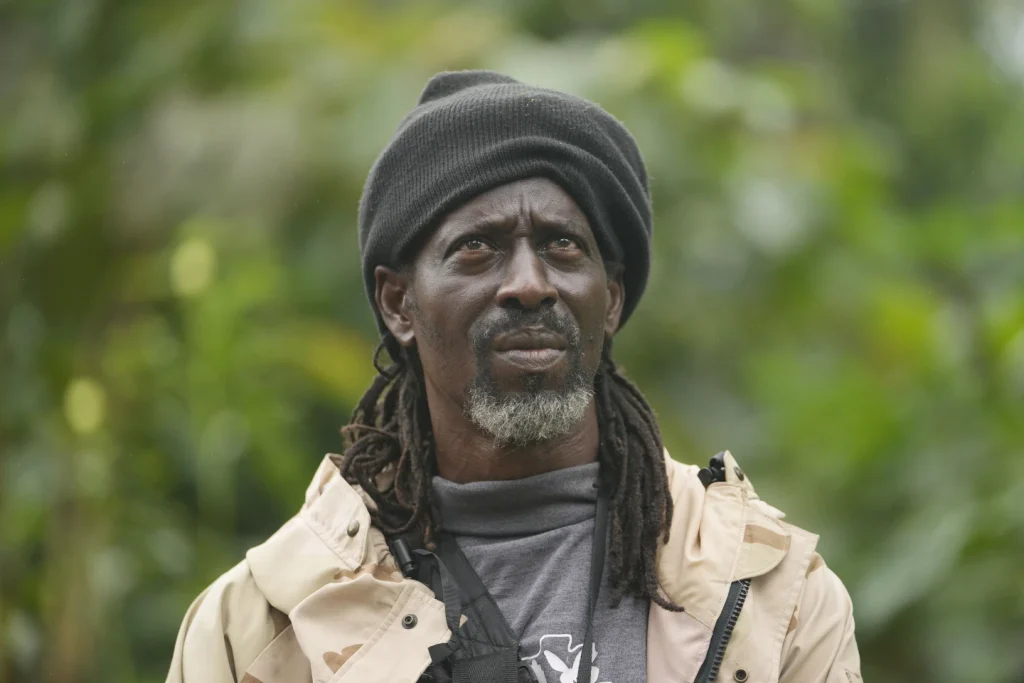
However, he also acknowledges the need to address the issue of deforestation in order to ensure Nigeria’s contribution to the global fight against climate change.
On the other hand, the state government denies that the pressure to make a living is to blame for illegal logging in the conservation area, stating that it is incorrect to attribute such actions to loggers seeking to steal parts of the conserved trees.
Adedayo’s statement that logging in protected areas is only possible with the cooperation of civil servants highlights a deeply concerning issue within Nigeria’s forest management.
This assertion is supported by the firsthand experiences of the government’s forest guards, who have witnessed the rampant corruption and illicit activities taking place within these forests.
Olaonipekun, one of the forest guards, laments the pervasive greed and poverty that contribute to this corruption.
Despite their efforts to enforce regulations and protect the forests, they are often rendered helpless as some individuals exploit their connections with higher authorities to flout the rules.
The government’s response to this crisis has been less than satisfactory, as it has yet to officially declare the conservation area a wildlife sanctuary, leaving it vulnerable to threats such as logging, farming, and poaching.
Emmanuel Olabode, who manages the Nigerian Conservation Foundation’s wildlife conservation project in the forest, emphasizes the importance of government intervention in enforcing regulations.
However, the foundation’s rangers have faced numerous challenges, including violent attacks from loggers who are determined to secure their timber supply.
Even after reporting these incidents to the authorities, no action has been taken, resulting in an unprotected and vulnerable area. In an attempt to address this issue, the government plans to involve the military and police in combating illegal operators.
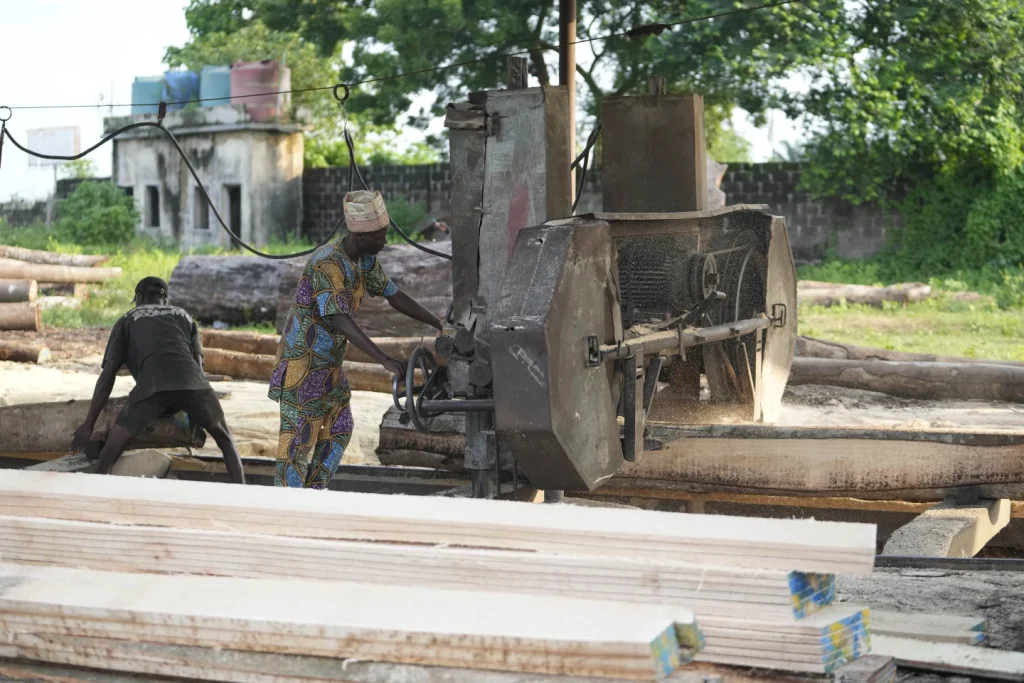
Additionally, the government urges law-abiding loggers to take a stand against their fellow members who engage in illegal activities.
It is clear that urgent and decisive action is needed to address the corruption, poverty, and violence that plague Nigeria’s protected areas.
Only through effective enforcement of regulations and the collaboration of all stakeholders can the country hope to preserve its natural resources and protect its wildlife for future generations.
